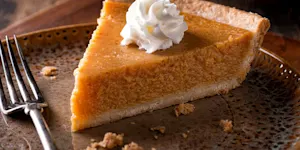What Makes This Word Tick
"Embellish" isn't just a fancy word for adding extra flourishes; it’s about enhancing and beautifying. It’s like adding an ornate frame to a beautiful painting or a few extra notes to a melody, just to make it sparkle a bit more. Whether talking about a story, a piece of art, or even a landscape, to embellish is to add an element that draws the eye or ear toward something already lovely.
If Embellish Were a Person…
They’d be that friend who always knows how to dress up, even for a trip to the grocery store. With a flair for creativity, they would keep everyone charmed with tales of minor events, turning them into captivating stories. Think of someone who turns the everyday into something extraordinary, with a sprinkle of glitter—metaphorically speaking, of course!
How This Word Has Changed Over Time
Initially, "embellish" focused more on the physical, as in adorning with ornamental detail. Over time, it has expanded to include embellishing stories and music, suggesting both literal and figurative enhancements. Today, it serves as a reminder that small additions can transform how something is perceived, whether visually or audibly.
Old Sayings and Proverbs That Use Embellish
While direct old sayings might be scarce, "embellish" relates closely to the proverb "You can’t make a silk purse out of a sow’s ear," which humorously notes that some things can’t be improved just by adding ornamentation. Similarly, "Don’t gild the lily" reminds us that adding unnecessary adornments isn’t always a good thing.
Surprising Facts About Embellish
Did you know the word has its roots in Latin? It comes from "bellus," meaning beautiful. The transformation over centuries from Latin into Anglo-Norman French has been quite a journey. It’s also a favorite in textile arts, where embellishing techniques such as embroidery bring extra life to fabric.
Out and About With This Word
In the world of fashion, designers embellish clothing with beads, sequins, and lace, creating garments that turn heads. Even in everyday life, someone might embellish a retelling of a weekend picnic with details about a stunning sunset or a curious squirrel.
Pop Culture Moments Where Embellish Was Used
In movies, a character might embellish a tale to impress others, creating comedy from their over-the-top exaggerated storytelling. "The Fisher King," for instance, touches on themes of storytelling embellished by imagination.
The Word in Literature
Authors often embellish their descriptions to create vivid imagery. In classic literature, think of the detailed settings in books by Charles Dickens or Jane Austen, whose richly adorned narratives embellish character and scene alike, making them leap off the page.
Moments in History with Embellish
Throughout history, tales of explorers sometimes came back to the Old World embellished to entice investment in new ventures. The age of exploration was rife with stories of cities of gold, shaking the imaginations of the period.
This Word Around the World
"Embellish" can be translated to "enbellir" in French or "adornare" in Italian, suggesting similar connotations revolving around adding beauty or attractiveness. Across cultures, embellishment in storytelling or art is universally appreciated.
Where Does It Come From?
"Embellish" originally derives from the Old French word "embelir," itself from the Latin "bellus," indicating beauty. Its journey through languages reflects an enduring human appreciation for adornment both literal and abstract.
How People Misuse This Word
Sometimes "embellish" is used pejoratively, suggesting a falsehood rather than an artful addition. Remember, embellishing should enrich, not distort!
Words It’s Often Confused With
Adorn: Focuses more on physical beautification, whereas "embellish" can be both literal and figurative.
Exaggerate: Implies overstating or amplifying, often in a way that can stray into fiction.
Decorate: Generally used for physical spaces or objects rather than stories or music.
Additional Synonyms and Antonyms
Synonyms include "enhance," "ornament," and "decorate." On the flip side, antonyms like "simplify" or "unadorn" represent the act of removing excess or sticking to the basics.
Want to Try It Out in a Sentence?
"Laura loved to embellish her grandmother’s apple pie recipe with a touch of cinnamon and a sprinkle of powdered sugar, turning it into the highlight of every family gathering."
















